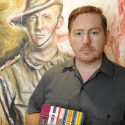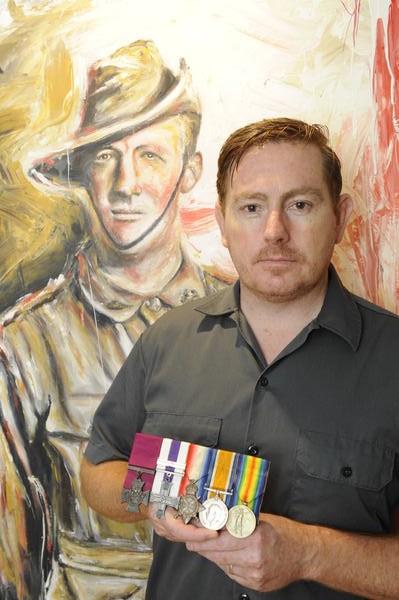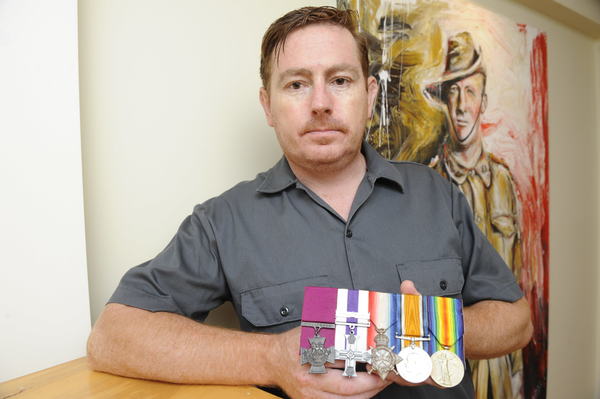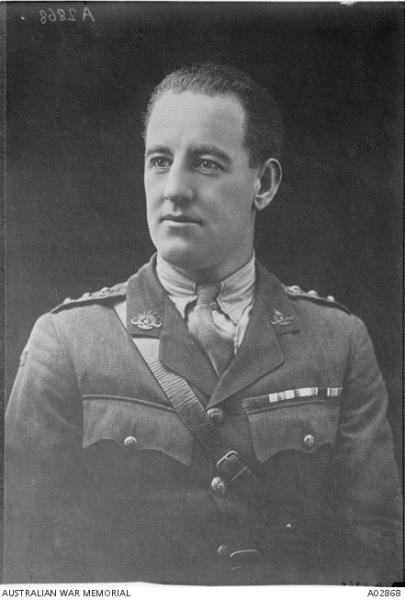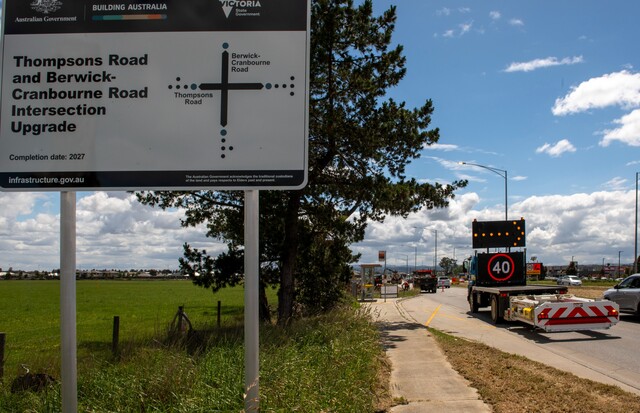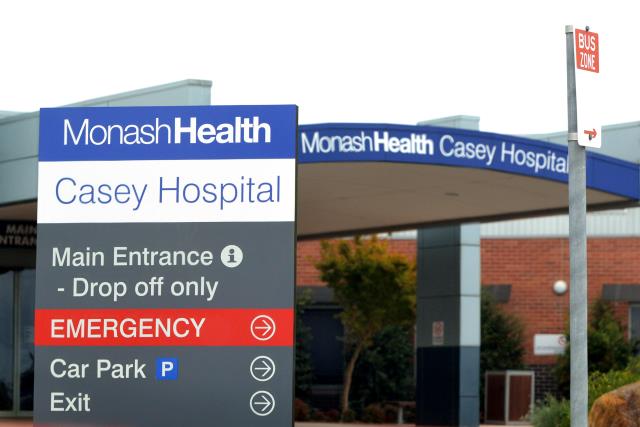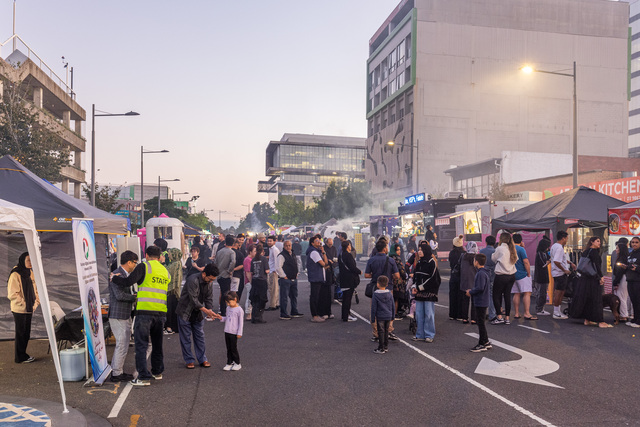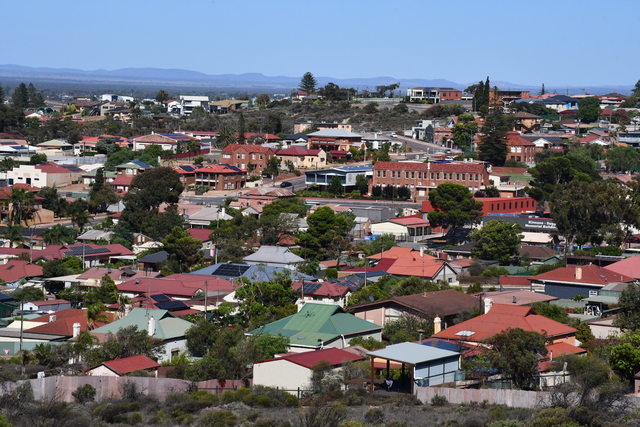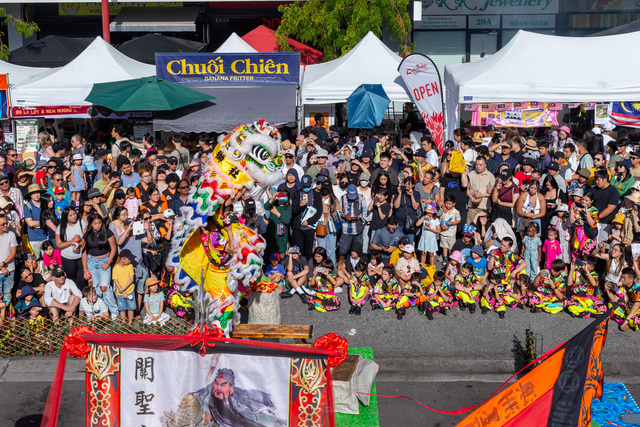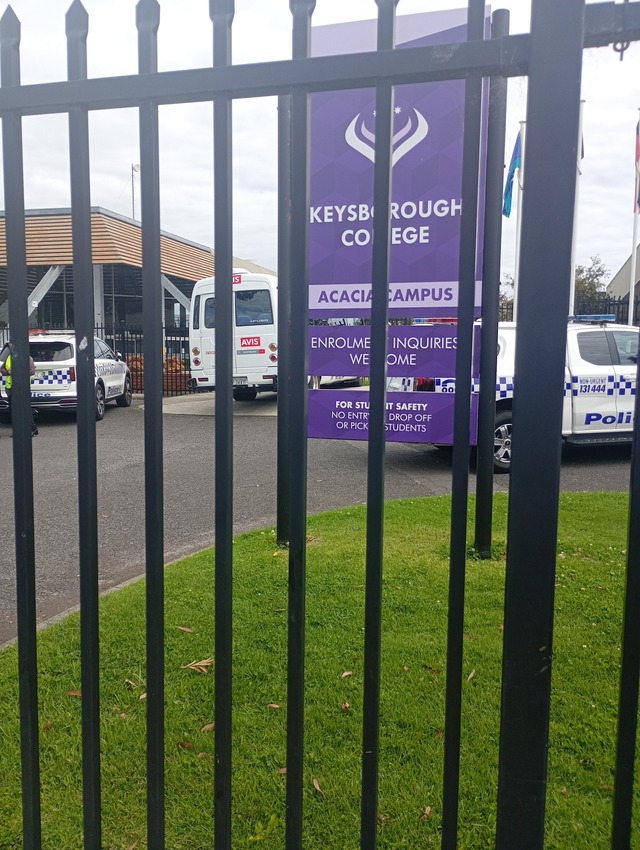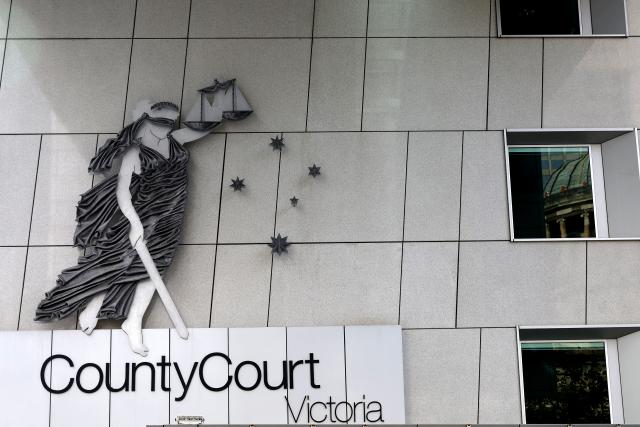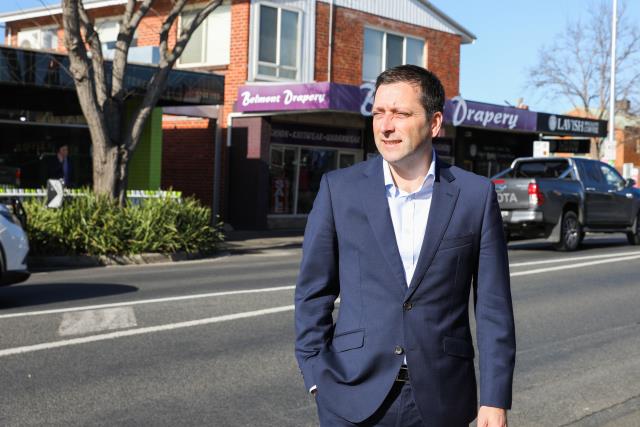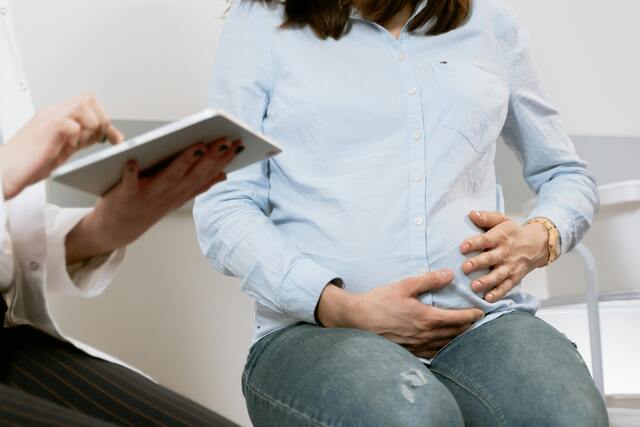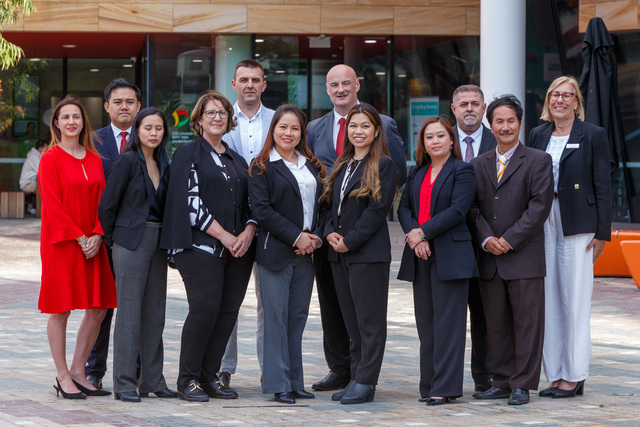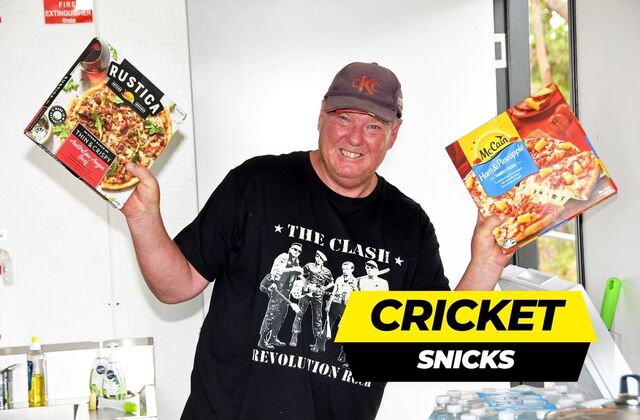By Cam Lucadou-Wells
If you’re from the same family as a Victoria Cross recipient, Michael Madden wants you.
The Berwick medal-mounter and screenwriter has put all his other work on hold for a year to compile a lavish coffee-table book The Victoria Cross, Australia Remembers.
He aims to tell the individual stories of the 100 Australian men who have been awarded the Victoria Cross – what he describes as the world’s highest military honour for valour.
An unabashed Mr Madden said he could talk all day about Australia’s first WWI Captain Albert Jacka, VC, who had family links to Berwick.
On 28 May 1915, The Berwick Shire News and Cranbourne and Pakenham Gazette announced that the freshly crowned hero was a nephew of Mrs H. Davy of the Kippenross estate.
Mr Jacka’s extraordinary deeds meant he deserved to be Australia’s most decorated veteran, Mr Madden said.
Most thought Mr Jacka should have won more than just one VC for his single-handed repulsion of a Turk counter-attack at Courtney’s Post, Gallipoli.
There was also his audacious, virtually-solo rescue of 50 Australian captives in German lines in Pozieres in 1916 as well as more extraordinary gallantry at Bullecourt in 1917.
Mr Jacka was “our first world-wide superstar” but his unpopularity with superiors meant he missed out on citations and medals he deserved, Mr Madden said.
There was a massive outpouring of public grief after Mr Jacka unexpectedly died from kidney disease aged just 39 years old on 17 January 1932.
About 50,000 people attended his funeral despite extreme heat and bushfires raging around Melbourne.
A commemorative funeral service is held at St Kilda Cemetery each year.
“No one knows who he was now, but he was easily the greatest frontline soldier Australia has produced,” Mr Madden said.
Mr Madden collects no wage from this labour of love; all profits go to the critical service The Totally and Permanently Disabled Soldiers Association of Victoria (TPI Association).
He credits the TPI Association for saving his veteran father’s life by helping him secure his TPI pension.
Mr Madden remembers how at the time the association helped lift his family from homelessness.
“By the nature of who they are, they are looking after the Diggers who need it the most.”
The project has become something of an obsession – and a herculean task, with just four surviving VC medallists in Australia, he concedes.
So far, he has video-interviewed 35 awardees or their families in his quest to not only tell the battle stories but “paint a picture” of the people behind the heroism.
It’s what will make the book different to the hundreds of times devoted to VC recipients.
“One of our fears was that families would not be that receptive to talking, but they’re all about the remembrance.
“They’re working hard to make sure they’re not forgotten.
“Everyone else wants to talk about the battlefield stuff, they want to talk about more personal things.”
The graves of VC recipients spread across 15 countries, as far away as remote Russia, Egypt, Libya, Japan, Kenya and Syria, are still to be photographed.
Mr Madden has invited Queen Elizabeth II to contribute a foreword, and landed quality publisher Big Sky Publishing to produce the cloth-bound book.
As part of the research, Mr Madden has enjoyed rare access to war memorials, shrines and museums.
Recently he travelled to England as perhaps the first Australian to visit and photograph the heavily secured Crimean War cannon metal which is used to make the VC medals.
He has also trekked around Australia with TPI Iraq veteran and the project’s lead photographer Gordon Traill to capture VC awardees’ burial sites and their families.
Mr Traill is relishing the project.
It gave him a purpose when he woke up each day and allowed him to give back to the TPI Association that had profoundly helped him, he said.
Some of the graves of VC soldiers were movingly modest. Mr Madden recalls some of them were heart-breakingly dwarfed by elaborate, neighbouring monuments.
He collected video interviews of VC-medallist Keith Payne, Doug Baird, who is the father of posthumous awardee Corporal Cameron Baird, Rob Kenna – son of awardee Edward – and others.
Mr Baird told of his son’s potentially-great AFL career.
Corporal Baird injured his shoulder in his draft year and his life-long desire to follow his father’s footsteps and play for Carlton was thwarted.
Fatefully, Corporal Baird instead enrolled in the military.
Had he not injured his shoulder he would not have been killed in action during one of several immensely gallant efforts as a Special Operations Task Group member in Afghanistan in 2013.
“But also had he not done the shoulder injury, all those men in the Afghan village, the Australian lives wouldn’t have been saved that day,” he said.
“Yet it remains tragic that that shoulder injury ultimately cost him his life.”
Corporal Baird’s father, meanwhile, travels around Australia to help look after his son’s 2nd Commando Regiment colleagues who have post-traumatic stress.
“That’s the type of people we’re finding,” Mr Madden said.
Mr Madden’s next great push is to talk to families of the remaining VC medallists.
Anyone who can help is asked to call 0418 900 204 or email michael@berwickmilitarymedals.com.au.
Fund-raisers for the book project will be held at the Shrine of Remembrance in Melbourne on 22 March and Box Hill RSL on 23 March.
The events feature private viewings of the Lost Diggers of Vignacourt paintings as well as talks by artist George Petrou, Keith Payne, Doug Baird, Rob Kenna, 60 Minutes journalist Ross Coulthart, Hard Jacka author Michael Lawriwsky and Lambis Englezos.
Bookings on 1800 774 900.

